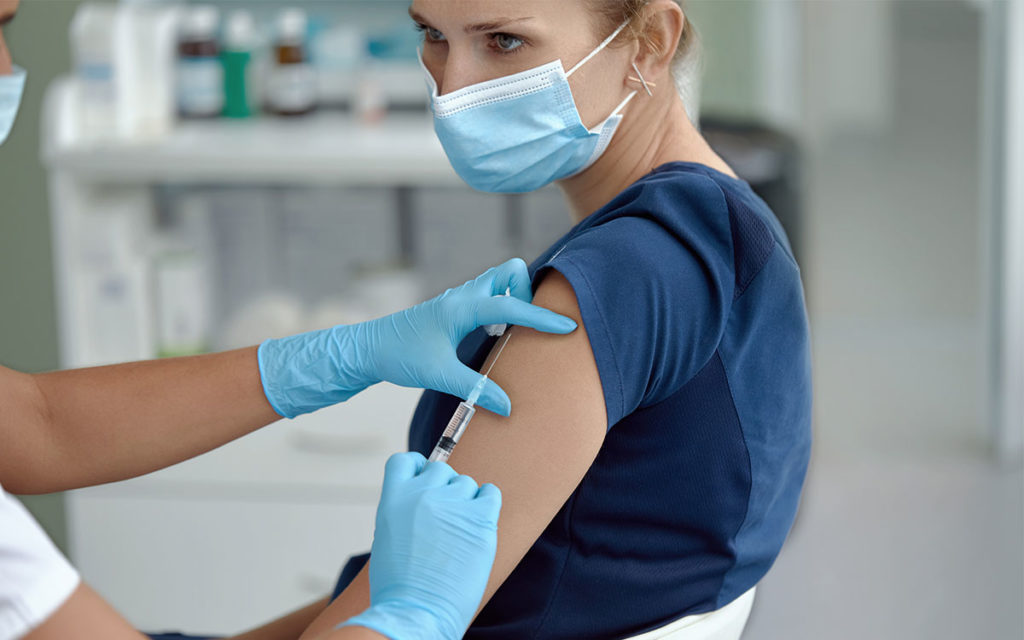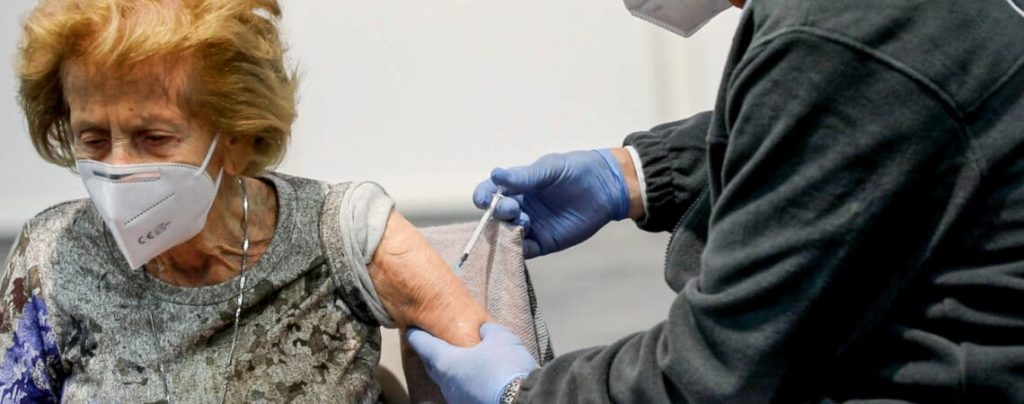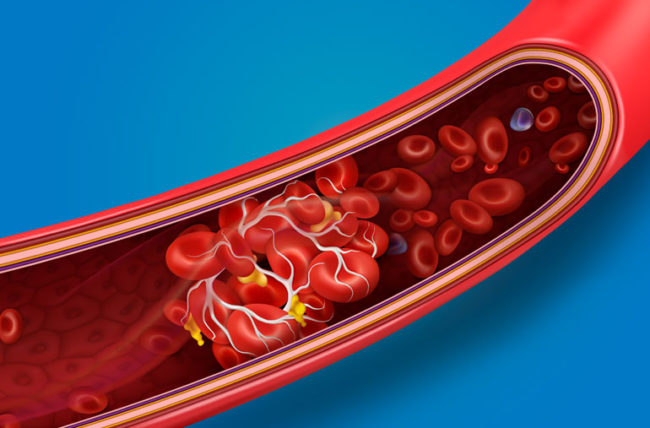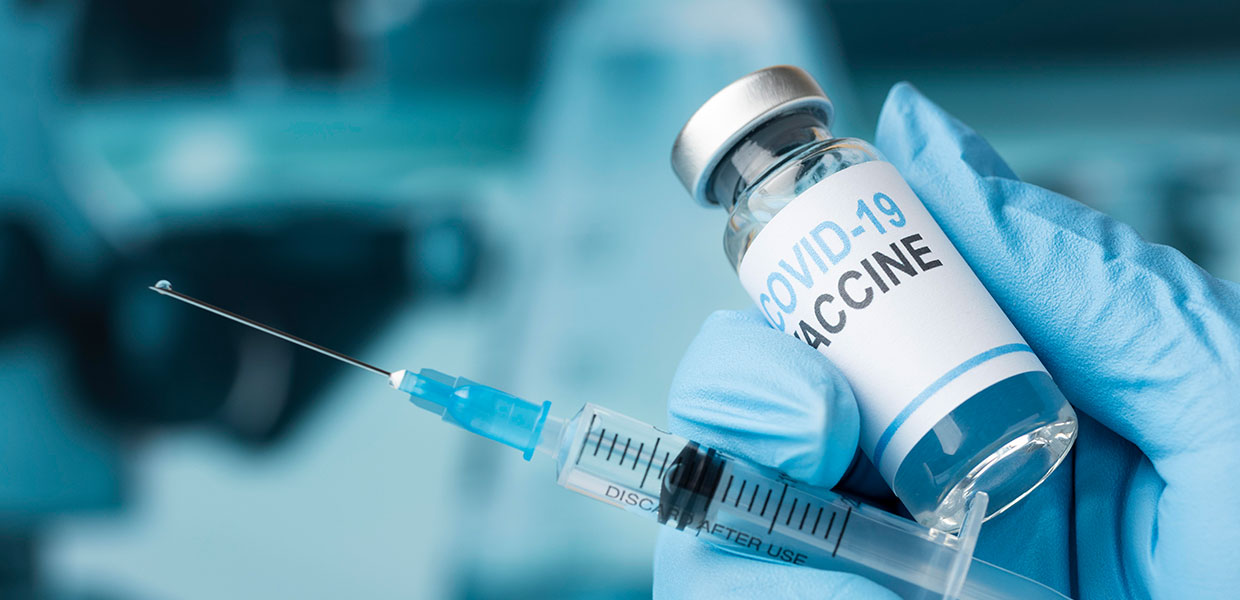Coronavirus Vaccines have side effects. It’s common to have adverse effects after receiving a vaccination. It demonstrates that the vaccination teaches your body’s immune system how to defend itself against the illness, but not everyone receives one.
After your coronavirus vaccine, there will be a period of waiting.
The adult booster program is being pushed out more quickly as a result of the Omicron variation. The 15-minute delay has been lowered to 5 minutes, as long as you feel OK, due to the very low risk of significant allergic responses (anaphylaxis). The four UK Chief Medical Officers have recommended this modification. The Medicines and Healthcare Products Regulatory Agency (MHRA) and the Joint Committee on Vaccination and Immunisation (JCVI) both endorse it (JCVI).
If you have any of the following, be sure to inform the immunization staff:

- an allergy history, especially to other immunizations
- With your prior dosages, you had an instant response
- Previously, I had collapsed after receiving a vaccine.
- You may be urged to remain for 15 minutes in certain cases. An allergy (or even anaphylaxis) in the family is not a risk factor.
- Due to the danger of fainting, you must not drive for 15 minutes after receiving the vaccination.
- If you think you’re having an allergic reaction, call for aid and/or dial 999 right away (or ask someone to do this for you). Symptoms often appear 15 minutes after immunization.
The following allergy signs should be kept in mind:
- Coughing uncontrollably
- Alterations in voice (hoarse voice)
- A swelling tongue that makes swallowing difficult
- Breathing that is difficult or noisy
- Snoring (like an asthma attack)
- Feeling dizzy or fainting for a long time
- Skin that is clammy
- Confusion
- Unresponsive/unconscious
Vaccination against the coronavirus has side effects. The majority of symptoms are minor and only last a few days. They may include the following:
- suffering discomfort, heaviness, and soreness in the arm where the injection was given
- Muscle ache or headache
- joint discomfort
- chills
- vomiting or nausea
- I’m exhausted
- Fever is defined as a temperature of 37.8°C or above.
- For a day or two, you may have flu-like symptoms such as shivering and shaking.
These typical side effects are much less harmful than contracting coronavirus or the difficulties that come with it, and they normally go away within a few days. You may relax and take paracetamol if you’re feeling uneasy. Make careful you follow the directions on the label or leaflet while taking paracetamol. If you are under the age of 16, avoid using aspirin-containing medications.

Swollen glands in the armpit or neck, on the same side as the arm where the vaccination was given, are an unusual adverse effect. This may continue up to ten days, but if it persists, visit your doctor. If you’re due for a breast exam (mammogram), you should note that you’ve received the vaccination when you go.
The duration of these side effects is usually shorter than a week. If you do seek medical counsel, be sure to notify them about your immunization so that they can properly examine you.
It’s quite typical to have a fever after being vaccinated. This generally starts 48 hours after the immunization and fades gone in the same amount of time. You do not need to isolate yourself or schedule a test unless you are experiencing additional coronavirus symptoms or:
- You’ve been notified that you’re a close contact of someone who has tested positive for coronavirus by NHS Test and Protect or your workplace health team.
- You live with someone who has just been diagnosed with coronavirus.
- You live with someone who has coronavirus symptoms.
- You should self-isolate and schedule a test if your fever begins more than 48 hours after the vaccine or lasts longer than 48 hours.
- Each dosage has its own set of side effects.
All coronavirus vaccinations are not created equal. Some have a tendency to induce more adverse effects after the first dosage, while others have a tendency to cause more negative effects with subsequent doses. The most frequent side effects are the same, and they should last just a day or two.
Even if you have adverse effects as a result of the vaccination, professionals recommend that you obtain all of the required doses. The whole suggested course will provide you with the finest virus protection.
There have been reports of very uncommon blood clots.

The Medicines and Healthcare Products Regulatory Agency (MHRA) is investigating allegations of a very unusual blood clotting issue that has affected a small number of persons who have received the Oxford/AstraZeneca vaccine.
The condition may also affect those who have not been vaccinated, and it is unclear why certain people are affected.
In the United Kingdom, the current documented rate of this illness is roughly 15 instances per million initial doses administered. The coronavirus vaccination may help you from becoming extremely sick or dying as a result of coronavirus infection. The advantages of vaccination exceed any risk of clotting difficulties for persons over 40 and those with underlying health disorders.
It is now recommended that persons under the age of 40 have either the Pfizer/BioNTech or Moderna coronavirus vaccination.
If you’ve already taken one dose of the Oxford/AstraZeneca vaccination and haven’t experienced any major adverse effects, you should finish the course (unless there is a medical reason for you not to have the same vaccine).
This includes health and social care professionals, unpaid caregivers, and persons who live with someone who has a severely impaired immune system and are between the ages of 18 and 39.
If you have any of the following symptoms between 4 days and 4 weeks after being vaccinated, call emergency immediately:
A strong headache that does not respond to pain relievers or is worsening

a headache that gets worse when you lie down or bend over a headache that comes with blurred vision, feeling or being sick, problems speaking, weakness, drowsiness, or seizures a headache that is unusual for you and comes with blurred vision, feeling or being sick, problems speaking, weakness, drowsiness, or seizures (fits)
Shortness of breath, chest discomfort, leg swelling, or persistent abdominal (tummy) pain are all symptoms of a rash that appears like tiny bruises or bleeding beneath the skin.
Capillary leak syndrome is a condition in which blood vessels leak.
Capillary leak syndrome has been documented in patients with a past history of this disease after receiving the Oxford/AstraZeneca vaccine. An alternate coronavirus vaccination may be provided to you.
Inflammation of the heart
Recent, uncommon episodes of cardiac inflammation known as myocarditis or pericarditis have been recorded worldwide following coronavirus immunizations, while it is unclear if these are caused by the vaccines.
Within a few days following immunization, these instances were predominantly found in younger males. Rest and easy therapies helped the majority of these patients recover and feel better. In the UK and elsewhere, longer-term follow-up is being conducted to better understand this response.
If you have any of the following symptoms, you should get medical help right once.
Shortness of breath chest discomfort sensations of a racing, fluttering, or hammering heart
If you have heart inflammation after your first dosage, you should stop taking it until your situation is evaluated by a qualified doctor.
Period issues and vaginal bleeding that isn’t Anticipated

After getting the coronavirus vaccination, some women have noticed transient changes in their periods. Heavy bleeding, missed periods, and sudden vaginal bleeding have all been reported by some women. These reports are being actively monitored and evaluated by the MHRA and other professionals. In the UK and elsewhere, longer-term follow-up is being conducted to better understand this response.
According to current research, there is no relationship between coronavirus immunizations and period issues or sudden vaginal bleeding. Given the amount of women who have received the vaccination and how prevalent period issues are in general, the number of reports is rather modest. The observed menstruation alterations typically do not endure long. Period issues, although unpleasant or upsetting, are quite common, and stressful life situations might cause your periods to be disrupted. Changes in the menstrual cycle have also been documented in women who have been infected with coronavirus or who have been infected with long-COVID.
Please see your doctor if you notice any unexpected changes in your periods that continue over time, or if you have any new vaginal bleeding after menopause as a result of coronavirus vaccination.
Side effects should be reported.
You may report potential adverse effects on the Yellow Card website, as you do with any vaccine.
Is it possible to get coronavirus from the vaccine?
You can’t acquire coronavirus via the vaccination, but you may get it before getting it and not realize it until after your immunization appointment.
- Pfizer/BioNTech coronavirus vaccine side effects
- The Oxford/AstraZeneca coronavirus vaccine has side effects.
- Moderna coronavirus vaccine side effects









Adderall is helpful in treating ADHD (Attention Deficit Hyperactivity Disorder) in kids and youngsters. While in adults it helps in treating ADD (Attention Deficit Disorder).
Phentermine is the one that lets you have the best of support while on your way to losing fats.
What a data of un-ambiguity and preserveness of precious knowledge regarding unpredicted feelings.
I blog often and I genuinely appreciate your content. Your article has really peaked my interest.
I’m going to bookmark your site and keep checking for new details about once per week.
I subscribed to your RSS feed too.